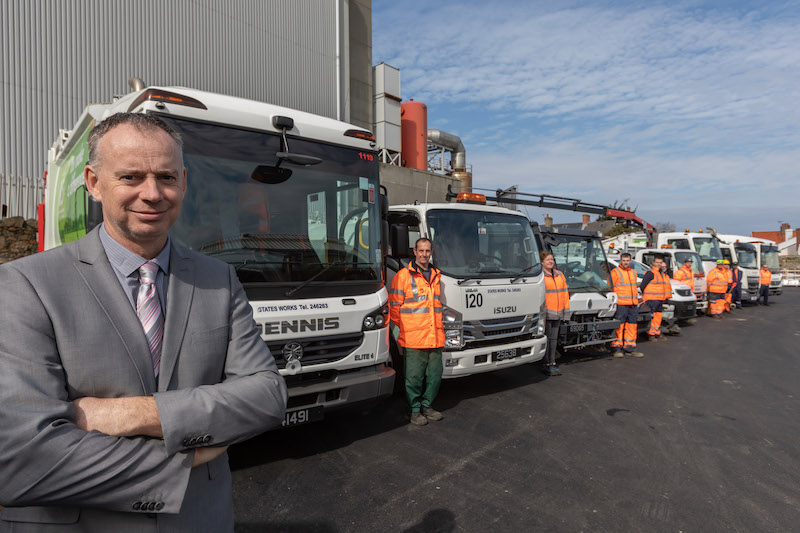


States Works is being limited by its "outdated" ICT systems, according to an independent review.
UK consultants, Red Quadrant, found that a lack of data was getting in the way of effective performance monitoring.
The States-owned business has already begun work to address the issue, with plans to use smart technology to support service delivery in areas like job allocation and scheduling.
"There are various limitations relating to data including availability, ability to extract information from systems, quality and validation," the report stated. "This is significant in that it limits the ability of States Works to adequately analyse, monitor and review performance across services.

Pictured: Paul Lickley.
"ICT systems are outdated and a programme of work is in place to address this. There is also considerable potential for technology to support service improvements."
General Manager of States Works, Paul Lickley, would like to see the business embrace greater use of technology.
"A lot of the services that we provide will involve manual labour to a greater or lesser extent," he said. "However, the way works are planned, co-ordinated and managed can be improved with the help of modern technology.
"We will still be relying on the skills and experience of our staff, but they will be better equipped and we will be able to collect valuable information that we can then use to improve services."
Before the roll-out of 'Pay As You Throw' charges for household rubbish, Guernsey Waste developed a mobile phone app for reporting non-compliance. All collection contractors were given a smartphone, so they could log when they came across a bag without the right payment sticker. The phone's GPS automatically records the location and a nightly report from each contractor is downloaded when they drop off at the transfer station.
That means by 06:00, Guernsey Waste has a report of any incidents of bags being left behind, which can then be followed up quickly.
Mr Lickley sees the app as a good example of where technology can help the business.
"Most of us these days are familiar and comfortable with using technology such as smart phones and mobile apps in our everyday lives," he added. "The tools that we will be looking to utilise in future won't be too dissimilar and they will enable smarter, more flexible working."
Comments
Comments on this story express the views of the commentator only, not Bailiwick Publishing. We are unable to guarantee the accuracy of any of those comments.